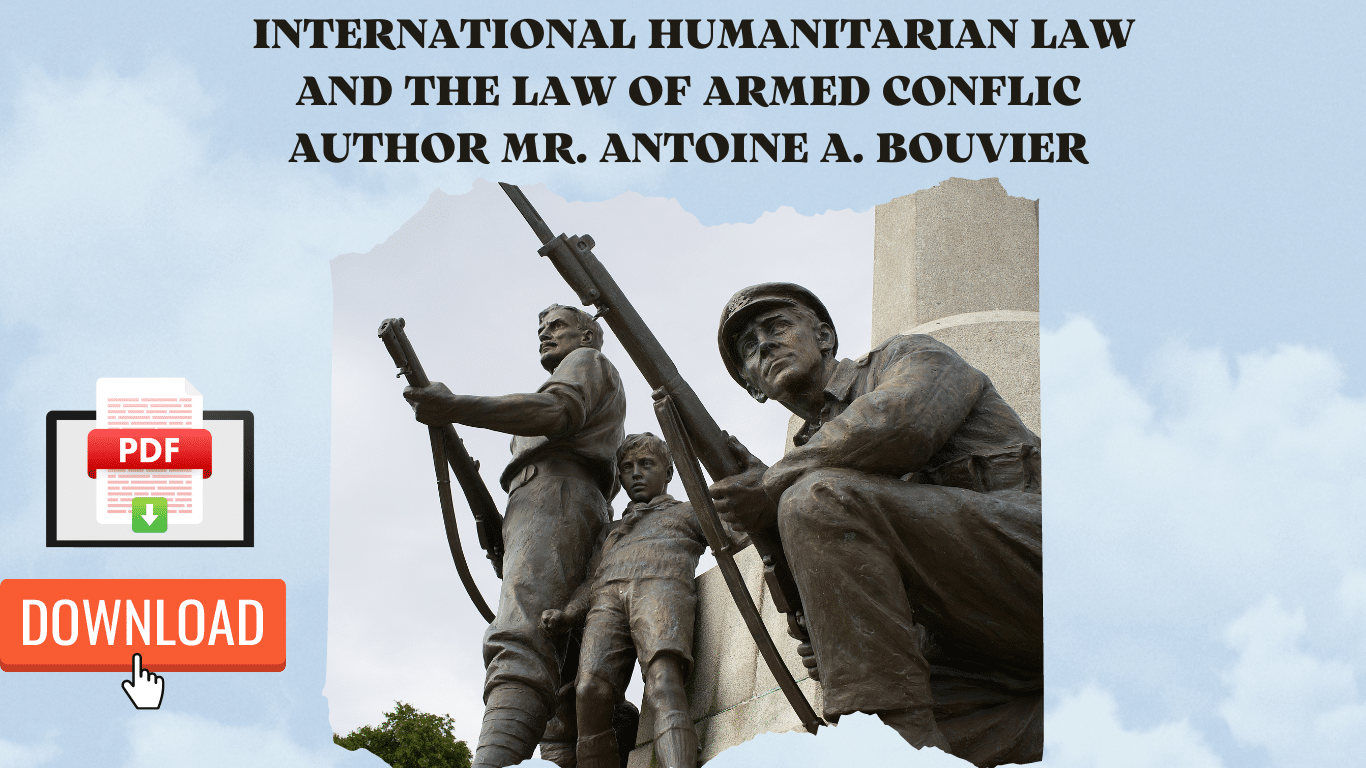Download the Book for Free
Interested in gaining deeper insights into International Humanitarian Law and the Law of Armed Conflict? You can download a free PDF copy of the book «International Humanitarian Law and the Law of Armed Conflict» by Mr. Antoine A. Bouvier from [insert download link here]. Explore the complexities of IHL and its implications in armed conflicts worldwide.
Introduction
Embark on a journey through the intricate landscape of international humanitarian law and the law of armed conflict with Mr. Antoine A. Bouvier’s enlightening work, «International Humanitarian Law and the Law of Armed Conflict.» In this comprehensive exploration, Bouvier navigates the complex web of legal principles and concepts governing armed conflicts worldwide.
Understanding International Humanitarian Law
Bouvier’s book delves into the core principles of international humanitarian law (IHL), which seek to protect individuals not taking part in hostilities and limit the effects of armed conflicts. Bouvier provides a detailed overview of the foundational principles of IHL, as well as the applicable norms in conflict situations.
Exploring Armed Conflicts
Bouvier examines various types of armed conflicts and the legal and humanitarian implications associated with each. He analyzes how IHL applies in both international and non-international armed conflicts, as well as in situations of occupation and counter-terrorism.
The Role of Parties in Armed Conflicts
The book delves into the roles of parties involved in armed conflicts, including states, non-state armed groups, and international organizations. Bouvier explores their legal responsibilities and humanitarian obligations under IHL, as well as the consequences of violating these norms.
Legal Practice Applications
Bouvier elucidates the practical applications of IHL principles in legal practice by examining significant cases and legal precedents. Readers gain insights into how IHL theory translates into tangible legal scenarios, offering valuable guidance for legal practitioners.
Unlocking Legal Insight: Significance for Attorneys and Enthusiasts
In the realm of legal expertise, «International Humanitarian Law and the Law of Armed Conflict» by Mr. Antoine A. Bouvier holds profound importance for attorneys and individuals passionate about international law. This meticulously crafted work offers a comprehensive exploration of fundamental principles and concepts, equipping legal professionals with the knowledge to navigate complex legal challenges confidently. Moreover, it serves as an essential resource for enthusiasts, providing a deeper understanding of humanitarian law and its role in modern conflicts.
Conclusion
In conclusion, Mr. Antoine A. Bouvier’s «International Humanitarian Law and the Law of Armed Conflict» offers a thorough and insightful examination of a critical aspect of international law. Whether you’re a seasoned legal practitioner or an avid scholar, this book is an invaluable addition to your library, providing a comprehensive exploration of humanitarian principles and their practical implications in contemporary conflicts.
Frequently Asked Questions about International Humanitarian Law and the Law of Armed Conflict
1. What is International Humanitarian Law (IHL), and how does it differ from other branches of law?
International Humanitarian Law (IHL) is a set of rules and principles that seek to limit the effects of armed conflict and protect individuals who are not taking part in hostilities. Unlike other branches of law, such as human rights law or criminal law, IHL specifically applies to situations of armed conflict, whether international or non-international.
2. What are the main sources of International Humanitarian Law?
The main sources of International Humanitarian Law are international treaties, customary international law, and general principles of law recognized by civilized nations. Key treaties include the Geneva Conventions and their Additional Protocols, which establish the legal framework for the protection of victims of armed conflicts.
3. Who is bound by International Humanitarian Law?
All parties to an armed conflict, including states, non-state armed groups, and individuals, are bound by International Humanitarian Law. This means they must respect and ensure respect for IHL norms and principles, regardless of their status or affiliation.
4. What are the primary objectives of International Humanitarian Law?
The primary objectives of International Humanitarian Law are to protect civilians and other non-combatants, limit the methods and means of warfare, and ensure humane treatment for those who are no longer participating in hostilities, such as wounded or captured combatants.
5. How is International Humanitarian Law enforced?
International Humanitarian Law is enforced through a combination of mechanisms, including national implementation measures, international courts and tribunals, and the International Committee of the Red Cross (ICRC), which monitors compliance with IHL and provides assistance to victims of armed conflicts.

